Town board compromises on mosquito policy draft
By Brendan Henry
The Surveyor
No topic has created division amongst the current town board more than spraying for mosquitos. This is not without reason, as the decision to spray could both prevent a health crisis and also present the possibility of negatively impacting the environment—at least according to members of the board.
Following a series of conflicting actions taken by the town board regarding mosquito management, trustees found it necessary to hold a study session on the topic. The purpose of the meeting was to discuss mosquito policy for the town going forward. Mayor Will Karspeck and Trustees May Albrecht, Sean Murphy and Tim Hardy were in attendance.
Town Administrator Chris Kirk presented a question of priority to the board regarding policy going forward and encouraged the board to come to a consensus on the issue. Kirk also noted that the vector index (VI), the ratio of mosquitos infected with diseases and viruses in comparison to the rest of the tested population, has fluctuated from low to high week after week and added that he does not have the data on how it correlates to people infected by the West Nile Virus (WNV).
The Centers for Disease Control and Prevention (CDC) and health department among other agencies recommend an integrated pest control plan that includes both larvicide and adulticide, using adulticide as a last resort to mitigate a possible health crisis. Kirk identified that there is a lot of standing water in town and this is the ideal place for mosquitos to reside. Draining excessive water from the persistent rainfall the year has brought has been a challenging endeavor according to Kirk.
Kirk was adamant about setting a hard focus for the study session.
“The real question is, are we going to spray?” Kirk offered the board.
Mayor Karspeck passed the mic to the trustees to let them have their say on the matter.
Albrecht, a survivor of WNV herself, hopes to see a strategic plan that allows Berthoud residents to make their own health decisions, stating that everyone has different ideas of how to stay healthy whether it be mitigating the risk of WNV or keeping their organic gardens organic.
“My answer is I’m not God. And I don’t want to play God with the environment. I want to allow it to do what it needs to do in a healthy way without interjecting too much manmade obstruction,” Albrecht said.
“I think communication is paramount,” Murphy said during his turn to speak.
Murphy believes that posting VI results to the Berthoud website is a positive, but that comprehensive policy is important. Believing that such a nuanced topic requires compromise, Murphy is a proponent of a “trigger” policy that would be enacted when a certain VI threshold is hit and residents would be informed, allowing them to cover up their organic gardens and prepare for a potential spraying event.
Mayor Karspeck is open to compromise and is on board with a VI threshold for spraying. His main qualm is that the spraying would be triggered by the previous week’s VI number rather than the index number on the night of the spray event.
Hardy is skeptical of the effectiveness that spraying would have on the mosquito population in such a small town. Murphy used Fort Collins and Loveland as an example when speaking of spraying at the 0.75 VI level. While Hardy feels that with those two cities, the spray area is larger and has more impact than if Berthoud were to be sprayed.
“I need more positive data to show that spraying is effective and not just destructive because I see those destructive benefits, the destructive results of spraying our community, but I haven’t seen any health benefits from it,” Hardy said.
After much discussion, the board compromised to put together a draft to vote on in the next town board meeting. The general ideas included a trigger for automatic spraying if the VI is at 1.0 for two consecutive weeks so long as the county sprays in conjunction. Other considerations include consulting Colorado State University experts to split Berthoud into Eastern and Western zones for spraying, consulting the county about increased traps along Berthoud’s town boundaries and incorporating a 10 p.m. start time and if needed a 5 a.m. end time for spraying.
All members of the board that were present seemed content with the compromise and praised each other for coming to a consensus on the issue.
A motion to pass the drafted policy will be considered at the next regular town board meeting on Sept. 12.
- August, 06 2015

Obituary: William Henry “Bill&#...
William Henry “Bill” Wegener: Nov. 8, 1938 – Aug. 4, 2015 Chief William Henry "Bill"...
- December, 07 2017
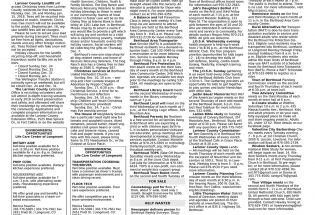
- June, 21 2018

Exercise your right to vote in the pr...
2018 Primary Election — voting locations All ballots must be recieved by the County Clerk...
- July, 18 2016

Yes, You Can Be Too Nice
By Tracey Ashcraft, MA LPC Surveyor contributor In kindergarten we were taught to be nice...
- June, 07 2023

Universal preschool set to start in t...
By Will Cornelius The Surveyor Beginning this fall, all Colorado children within a year of...
- May, 04 2023
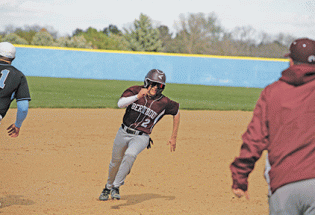
Spartan baseball undefeated in April
Photo by Will CorneliusSophomore Elisha Mosher of BHS sprints home from...

Berthoud mulls Downtown Development Authority
Community News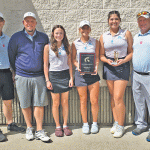
Berthoud takes second in R2J Girls Invitational
Community News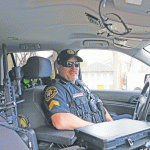
A day in the life as Berthoud’s top cop
Community News
Unified basketball comes to Turner Middle School
Community News
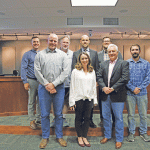
Mike Grace says goodbye as Brett Wing joins town board
Community News
POLICEBLOTTER
Community News
Northern Water sets C-BT quota at 70% for 2024
Community News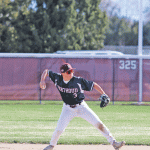

Emotions run high during Revere Property hearing
Community News
COMMUNITY CALENDAR:
Community Calendar – add an event
Homestead Fine Art Gallery First Fridays OPEN HOUSE
07 Jun 4:00 PM - 7:00 PM
Homestead Fine Art Gallery First Fridays OPEN HOUSE
05 Jul 4:00 PM - 7:00 PM
Homestead Fine Art Gallery First Fridays OPEN HOUSE
02 Aug 4:00 PM - 7:00 PM
Homestead Fine Art Gallery First Fridays OPEN HOUSE
06 Sep 4:00 PM - 7:00 PM
Homestead Fine Art Gallery First Fridays OPEN HOUSE
04 Oct 4:00 PM - 7:00 PM
Homestead Fine Art Gallery First Fridays OPEN HOUSE
01 Nov 4:00 PM - 7:00 PM

